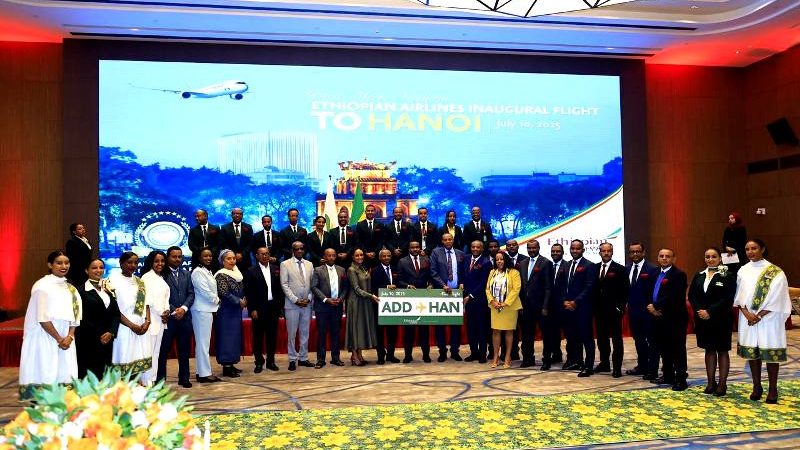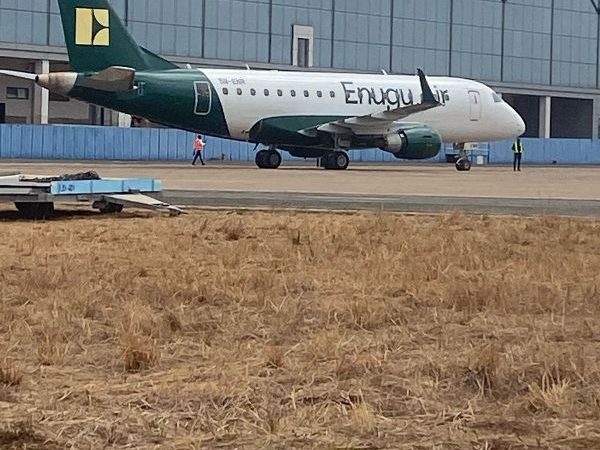Stop Reliance On Fuel Importation To Service The Economy, Stakeholders Tell FG
“Nigerian Government should partner with private investors to establish and maintain more functional and efficient refineries to fully exploit the potential of our economy as a top oil-producing nation. As a corollary to the above, Nigeria should plan to end her reliance on fuel importation to service the economy as this is just a temporary palliative measure that is not only detrimental to the economy but is also not a sustainable practice.”
This is an excerpt from the recommendations made in a communique issued at the end of a webinar organized by The Aviation Sector Group of The Institute of Chartered Secretaries and Administrators of Nigeria (ICSAN) last Friday.
The Communique signed by Taiwo Ganiyat Olusesi (Mrs.) FCIS, Registrar/CEO of ICSAN further states that “Government and other stakeholders should urgently find a permanent solution to end the scarcity of not only Jet A1 aviation fuel, but also other types of fuel that facilitate transportation in Nigeria. The Federal Government should charge the Nigeria National Petroleum Company Limited, (in the meantime before the nation becomes self-sufficient in fuel production) with sourcing for Jet A1 in addition to its other responsibilities as it has both the structure and experience in this area. This will make the situation less volatile than the present where individual vested interest has to import the aviation fuel. There will also be greater adherence to quality and standards if the importation is solely handled by the NNPCL.
Airlines companies and fuel suppliers should continue to consider “Fuel Hedging” as way to reduce the impact of sudden hike in fuel prices. The airline companies should also embrace the modern trend of adding to their fleet, technologically advanced aircraft with remarkable comparative advantages like fuel efficiency, reduction in weight and overall improvement in aerodynamics and control systems.
Regulators in the aviation sector must be more committed to their responsibility of ensuring compliance, safety and overall efficiency of the sector as they constitute one of the major bedrocks on which the superstructure of the entire industry lies.”
The Forum further recommended that “the airlines need to engage more with the consumers of their services in terms of adequate communication (e.g. on issues relating to flight delay or cancellations) in the spirit of disclosure and transparency, as most consumers do not understand the workings of airline operations and may not be able to fathom the full ramifications of the challenges being faced by the airlines.
Nigerians should be wary of unwholesome practices, including keeping items such as currencies in their checked-in luggage. They should also ensure they take precautions by insuring their essential items with value above the insured sum provided by the airline companies.
There should be a three-way agreement among the Ministry of Aviation, the NNPC and the Central Bank of Nigeria (CBN) to foster collaboration in ensuring interrelated problems line sourcing for Foreign Exchange and standard aviation fuel and lack of proper planning and coordination affecting the aviation are effectively addressed” and “all stakeholders in the aviation industry should work in synergy to ensure the health and continued survival of the industry, not only through refraining from practices and activities capable of undermining the sector but also through embracing positive practices that conduce to the interests of other stakeholders including employees, customers and suppliers. This will strengthen the integrity and prosperity of the sector.”
The recommendations were made based on the Forum’s observation that for economies in the world to interconnect and function optimally in these modern times, the aviation sector of nations must thrive and be fully exploited; nations with problematic aviation sector will inevitably be left behind in the scheme of things and owing to the critical role air transport plays in the economy and security of a country, any country facing challenges in the aviation sector, like scarcity of fuel, has a serious crisis on its hands.
It was equally observed that the availability of Jet A1 product is key to the operations of airlines. It is the second factor input after labour, constituting 30 to 40 percent of the total operations costs and availability of this product effectively leads to positives such as profitability of the airlines’ operations and a sustainable growth in the GDP contribution of the Aviation Industry, improved route development and sustainability of the existing ones, low ticket prices, on-time boarding and take-off of flights as scheduled, thus, leading to passenger satisfaction.
According to the Forum, the present unavailability of locally refined Jet A1 in Nigeria is attributable to a number of reasons including lack of functional refinery, shortfall in foreign supply due to Ukraine-Russian war and the weakening value of the national currency, Naira against the global trading currency, US Dollars.
The scarcity has led to crisis in the sector and the entire economy. Such crisis include rapidly rising landing costs and selling prices to airline operators in recent months, hike in air-fare by the airline operators, as well as increase in their charges for cargo and courier services, delay in flight take-offs and sometimes total flight cancellation, reduction in airline operators’ profit, which might affect their operational efficiency, accumulation of debts by domestic airline operators to Federal Airport Authority of Nigeria (FAAN), and other sister agencies and distress in the sector and job losses.
“In Nigeria, several airlines have gone under as a result of the “permacrisis” in the aviation sector while many others are still struggling to survive. The quantum of business the nation has lost as a result of aviation problems and negative impacts on the economy have underlined the critical nature of the aviation sector to a nation.
Air schedule reliability and customer satisfaction have considerably reduced for reasons beyond the total control of the airlines as the ongoing “permacrisis” in the aviation sector continues to make it difficult for airlines to render best services to their customer.
Importation of aviation fuel to bridge the gap of the scarcity can never be a viable and lasting solution as this is not sustainable, but can only be a temporary measure. The Nigeria National Petroleum Company Limited is a humongous petroleum organization that is involved in every aspects of the petroleum industry with dozens of subsidiaries that engaged in multiple activities. It is therefore in a position to play a major role in addressing the crisis of fuel scarcity being faced in the aviation sector. If the crisis inherent in Jet A1 scarcity is not quickly arrested, it might lead to airline failures and further job losses. This, will throw the industry into chaos.
There is therefore an urgent need to address the problem of Jet A1 scarcity in Nigeria in order to restore normalcy which would pave way for growth and development of the aviation sector in Nigeria,” states that communique.
ICSAN is a leading professional body dedicated to the protection and promotion of Corporate Governance and Public Administration through continued professional training, guidance, and policy advocacy. The Institute has many sectoral groups exclusively focused on diverse sectors of the Nigeria economy, one of which is the Aviation Sectoral Group.
The Aviation Sectoral Group is tasked with the responsibility of engaging issues, problems and challenges in the Aviation Sector with a view to formulating practical solutions to them as well as generating constructive ideas for stimulating the growth and sustainable development of the Sector.
The webinar was specifically aimed at highlighting current issues bedeviling the aviation industry, especially as regards the aviation fuel crisis and its implications for the Nigerian Aviation Sector, and proffering suggestions on way forward.
The theme of the webinar was “Jet A1 crisis and the implications for aviation industry”
The Keynote Speaker was the Managing Director/Chief Executive, Federal Airport Authority of Nigeria, (FAAN),Captain Hamisu Yadudu. An array of seasoned subject matter experts also participated as discussants to add deeper perspectives to the discourse. The Discussants were the Chief Operating Officer of Ibom Air Mr, George Uriesi; Sales and Marketing Supervisor, Messrs. Africa World Airline Nigeria, Mrs. Emuobowhotowhoria Victoria G. Fiewor; Partner General Sales and Solutions Management Ltd, Mr. Babatunde Adeniji; Assistant Secretary General, Aviation Safety Roundtable Initiative, Mr. Olumide Ohunayo; Principal Managing Partner, Avaero Capital Partners, Mrs. Sindy Forster; and Mr. Olayinka Adeyiga, Senior Manager, (Airport Services) Green Africa.
The President of the Institute, Taiwo Gbenga Owokalade, FCIS, was the Chief Host while the Host was the Chairman of the Aviation Sector Group, Mrs. Nkechi Onyenso, FCIS. Also in attendance were the Registrar, Mrs. Taiwo Olusesi, FCIS; some Council Members, members of the Institute as well numerous stakeholders in the Aviation Sector.







